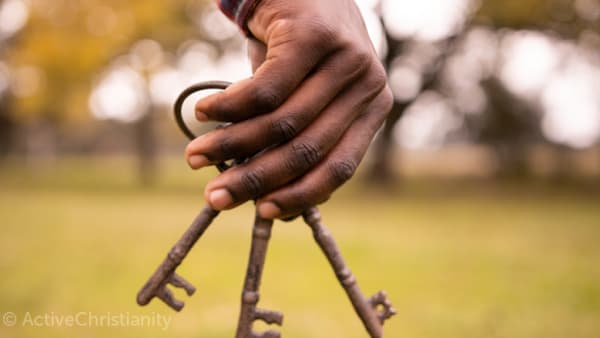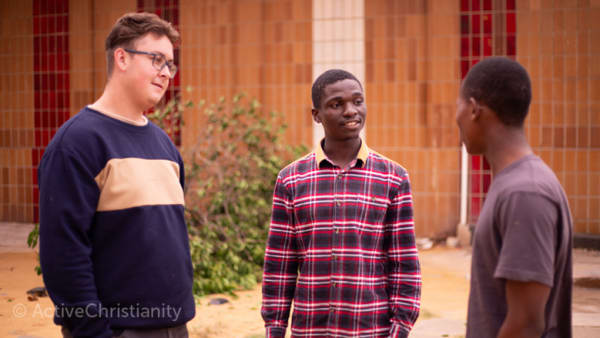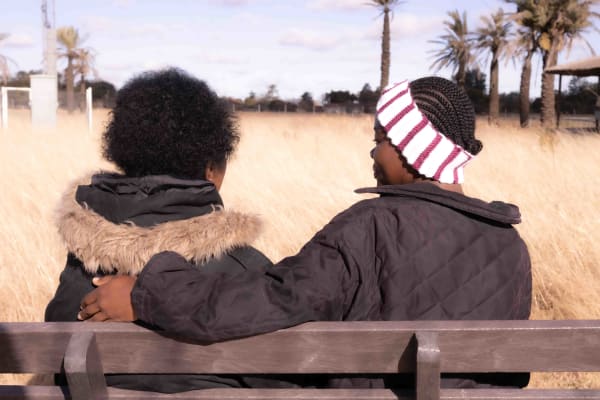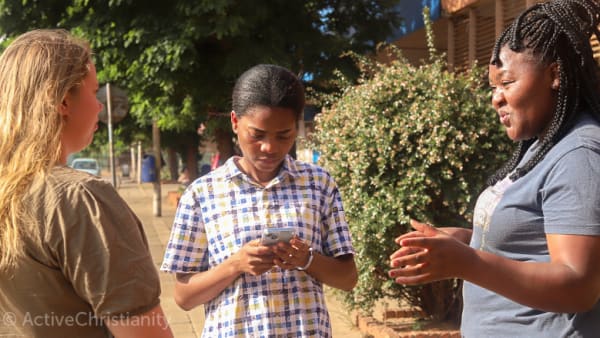As a Christian, I have made an agreement with God that I will not sin. “So, do not let sin control your life here on earth so that you do what your sinful self wants to do.” Romans 6:12-13 (NCV). But often I see that I do things, and then later realise that what I have done is wrong. By then it is too late - the deed has already been done. Does that mean that I’ve sinned?
I have given my life to God and decided to live for Jesus alone. I now have a new attitude of mind that wants to do what is good, and I have completely stopped with my old sinful behaviour, with all those things that I know are sin and which separate me from God.
But I find that I am still tempted to sin. For example, I am tempted to tell a lie to get out of a difficult situation. But such “desires to sin” that are a part of my human nature, do not have to control me. With God’s help, I am now able to see when I am tempted to sin. Then I can say ’No!’ to whatever I am tempted to and overcome sin.
I have also started to see how I often do things that I did not mean to do, but which are still against God’s will. For example, before I realise it, I become irritated with a friend who does something that I don’t like. Even though my whole desire is to be good to everyone, such things just come out.
Now I understand what Paul is talking about when he says, “I don’t really understand myself, for I want to do what is right, but I don’t do it. Instead, I do what I hate.” Romans 7:15 (NLT). I don’t even know that I am doing these things until they’re already done. So am I sinning without knowing it; without wanting to?
Deeds of the body
To sin, I must first be aware that I am being tempted, and then give in to the temptation. When I do something wrong without first really being aware that I am being tempted to sin, that is what the Bible calls a “deed of the body”. (Romans 8:13.)
Everyone has sinful lusts and desires inside their human nature, and sometimes they come out without us even knowing beforehand that they are going to. This is not the same as doing sin. There wasn’t that specific moment when I realised I was being tempted and needed to decide whether or not I was going to say ’Yes’ and give in to the temptation.
It can happen, for example, that I walk away from a conversation and I see afterwards that I was actually judging and criticising my friend. Or I realise that I reacted impatiently in a certain situation. I become aware that something that I’ve done was not God’s will; it wasn’t right.
When this happens, I still have the opportunity to overcome! But I have to admit what I’ve done – if I am too proud to admit that I was wrong, then God cannot do anything with me. “God resists the proud, but gives grace to the humble.” James 4:6. I admit that what I did was not God’s will. I really want to serve God, so I hate everything that is not according to His will, and I take a firm decision to be more awake in the future. When I do this, I am overcoming after doing something wrong. This is what the Bible calls “putting to death the deeds of the body”. (Rom.8:23.)
Move on
Then I need to move on and not allow Satan to accuse me and cause me to get a bad conscience. Discouragement is never an option. My will is still to do what is good; that has not changed. “But if I do what I don’t want to do, I am not really the one doing wrong; it is sin living in me that does it.” Romans 7:20 (NLT). It happened, but now it is in the past. Now I know better, and next time I come into a similar situation I will be more awake. I will know what I am easily tempted to and I will be awake so that I see the temptation in time and say ‘No’ to it.
Paul goes on to explain: “So you see how it is: In my mind I really want to obey God’s law, but because of my sinful nature I am a slave to sin.” Romans 7:25 (NLT). “There is therefore now no condemnation to those who are in Christ Jesus, who do not walk according to the flesh, but according to the Spirit.” Romans 8:1. No condemnation! My mind did not agree with the “deed of the body” and Satan can’t accuse me.
We have so much grace from God. He really wants it to succeed for us, and He gives us every opportunity to change. (Romans 12:2; 2 Peter 1.) We can get godly nature! But if we want to share in godly nature, we have to become free from our human nature. So then we need these situations where we can see our human nature and learn to cleanse ourselves. (2 Corinthians 7:1.) We can’t know what needs to be cleansed out if we don’t see it first.
Completely changed
When I see that I have judged someone or have been suspicious of others, even though I did not mean to do it, then I know that judging or suspicion are things in my human nature which I am easily tempted to. Now I know what I need to work on - I have to get rid of my judgmental and suspicious attitude so that it can be replaced with goodness and mercy.
Another example would be if I look back on a situation and see that I was behaving selfishly, even when I really didn’t want to be selfish Then I get to see how this is actually part of my human nature. Now I can take action and use every opportunity I see to learn to be giving and loving, rather than living for myself.
When I’ve seen that I’ve been worried, then I see just how much more I need to learn to trust in God.
The list goes on. We’ll find that as human beings we are weak, but God is strong and He will help us. He will give us everything that we need so that we can be completely changed.
“He strengthens those who are weak and tired. Even those who are young grow weak; young people can fall exhausted. But those who trust in the Lord for help will find their strength renewed. They will rise on wings like eagles; they will run and not get weary; they will walk and not grow weak.” Isaiah 40:29-31 (GNT).




